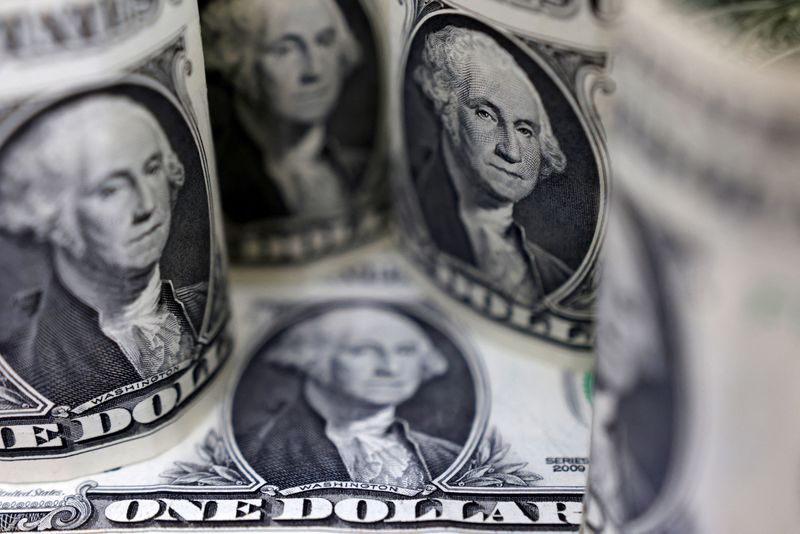US dollar edges up to two month highs as Fed, CPI eyed
By Alden Bentley
NEW YORK/LONDON (Reuters) - The U.S. dollar edged higher on Wednesday ahead of the release of records from the Federal Reserve's September decision to slash interest rates by 50 basis points, reflecting confidence that the central bank will not continue easing so aggressively.
Worries about demand from China have been a theme all week, amid disappointment in the follow-up to last month's stimulus measures. Especially hard hit on Wednesday were the Australian and New Zealand currencies.
While the minutes from the last Federal Open Market Committee meeting could show how heated the debate was over the larger-than-expected cut, it will be somewhat out of date after last Friday's robust nonfarm payroll data caused markets to reprice near-term Fed rate cut expectations.
The euro extended its recent sell-off to a two-month low against the greenback, and was last off 0.26% at $1.0953. Dollar/yen rose 0.61% to match Monday's 149.10 high, which was its loftiest since Aug 16.
The yen has been whiplashed since Japan's new Prime Minister Shigeru Ishiba, known for being a critic of easy monetary policy, surprised markets with recent remarks that the nation is not ready for further rate hikes.
Ishiba has set a snap election for Oct. 27, ahead of the Bank of Japan's October monetary policy meeting and the U.S. presidential election on Nov. 5.
The dollar index , which measures the greenback against a basket of currencies including the yen and the euro, extended its rally to the highest since Aug. 16 and was 0.26% firmer at 102.76.
Traders are also watching a parade of Fed speakers on Wednesday and keeping powder dry for Thursday's release of September's consumer price index.
"The big stuff now, we've got the CPI tomorrow. I think that China's announcement that they are going to make another announcement Saturday, the Ministry of Finance, that's important," said Marc Chandler, chief market strategist at Bannockburn Global Forex in New York. "Although, we're not seeing much of an effect here today in the dollar block."
Looking at the fed funds futures term structure, traders see about an 88% chance of a 25 basis point cut at the November meeting, and about 50 basis points more by year end, according to LSEG calculations.
Dallas Federal Reserve Bank President Lorie Logan on Wednesday said she supported last month's outsized interest-rate cut but wants smaller reductions ahead, given "still-real" upside risks to inflation and "meaningful uncertainties" over the economic outlook.
Also on the docket later are Chicago Fed President Austan Goolsbee, Richmond Fed President Thomas Barkin, Fed Vice Chair Philip Jefferson and after the close Boston Fed President Susan Collins and San Francisco Fed President Mary Daly.
China's finance ministry on Wednesday called a press conference for Saturday on fiscal policy, raising expectations of stimulus, a day after a news conference from the state planner - the National Development and Reform Commission - disappointed markets by yielding no major new stimulus details.
But that did little for the Aussie , which was down 0.36% on the U.S. dollar at $0.6721. The yuan weakened to 7.0810 per dollar.
The New Zealand dollar was one of the biggest movers on Wednesday after the Reserve Bank of New Zealand cut interest rates by 50 basis points,
The kiwi tumbled 1.14% to US$0.6069 and hit its lowest in nearly two months
"We see mounting near-term headwinds (for the New Zealand dollar against the U.S. dollar) including hawkish repricing for the Fed, potential geopolitical escalation, de-risking ahead of the U.S. election, exhausted momentum in terms of trade, and now a more-dovish-than-expected RBNZ," said Lenny Jin, global FX strategist at HSBC.
"Potentially strong fiscal stimulus from China is an upside risk but the (Australian dollar) is set to benefit more."
Source: Investing.com
